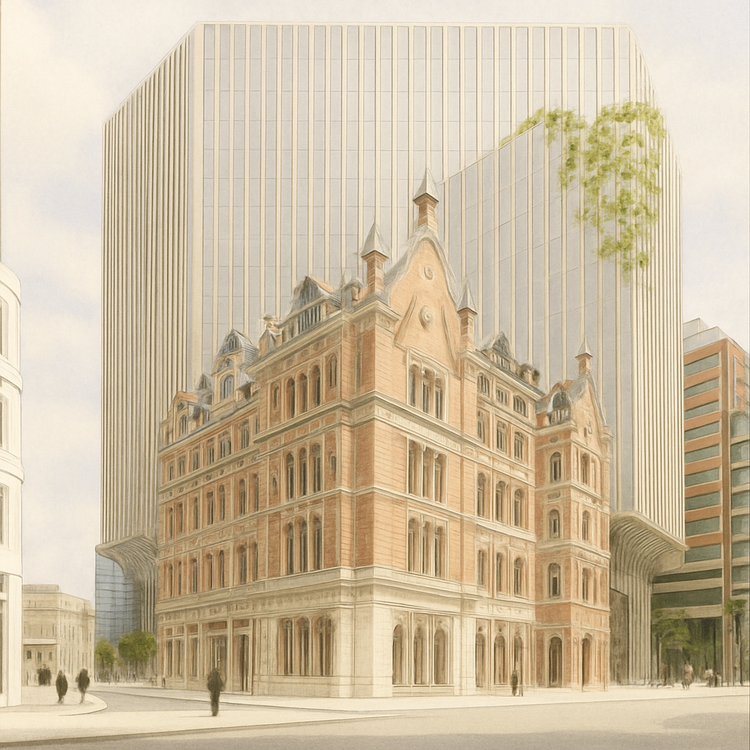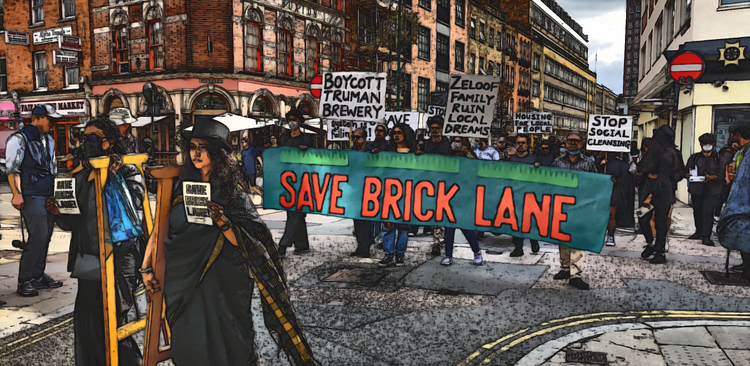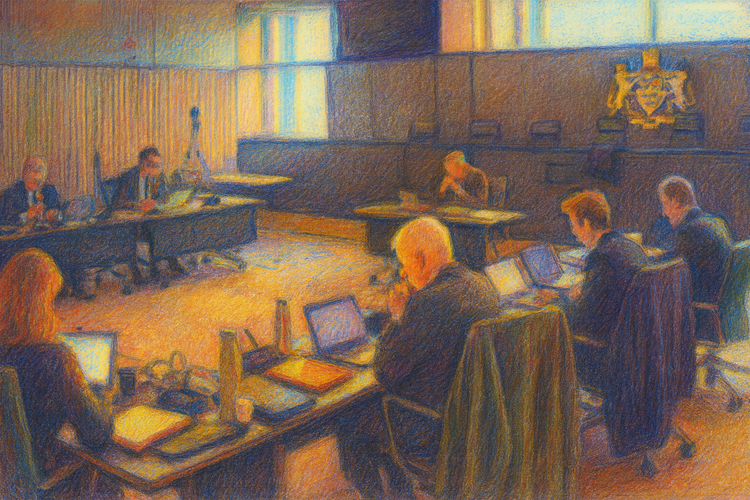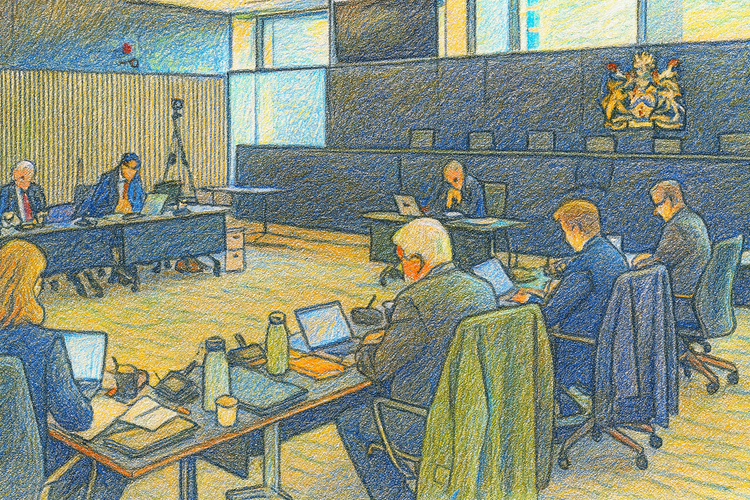Corbett Arms: Why Tywyn’s Living History Must Not Be Erased
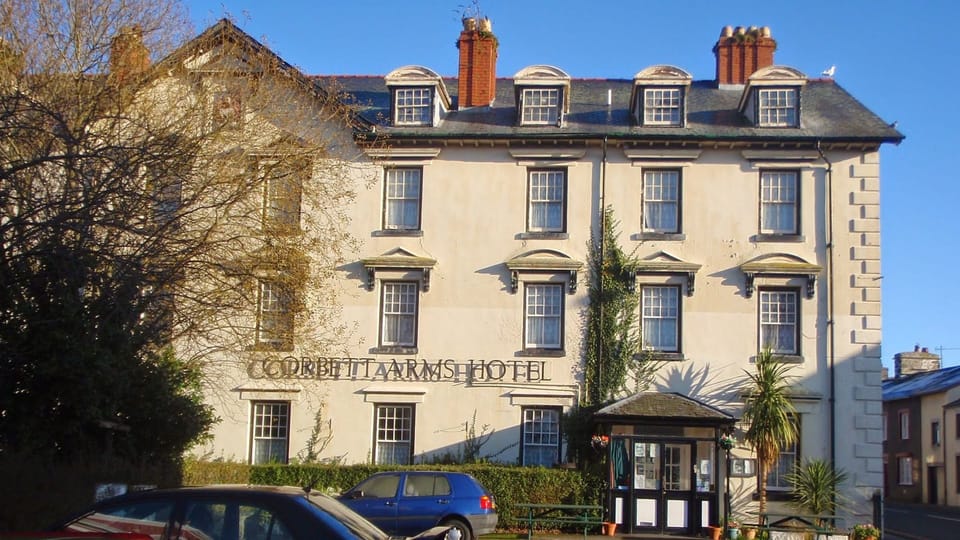
By ConserveConnect Editorial Team
August 2025
In the Welsh seaside town of Tywyn stands a building whose history runs deeper than brick and mortar. The Corbett Arms Hotel is not only a Grade II listed structure of architectural merit—it is a community landmark and cultural touchstone that once hosted John Lennon and Yoko Ono. Today, this 19th-century icon faces demolition under the guise of "safety," based on disputed engineering claims and a troubling absence of conservation oversight.
The case for demolition is being advanced without public release of structural evidence and under the advisory of a demolition contractor—not an independent conservation specialist. This alone should trigger national concern. When the party with a vested interest in clearance is allowed to act as the sole technical advisor, the result is rarely preservation. It is removal. Erasure.
Yet the Corbett Arms is not beyond repair. An independent review by structural engineer Jon Avent confirms what locals and heritage experts already know: the building is recoverable, and its historic core remains structurally sound. Demolition is not only unjustified but may cause further destabilisation of the surviving sections. Crucially, a potential buyer exists—one willing to invest in restoring the building and reintegrating it into the economic and cultural life of the town.
Community Voices: What Tywyn Stands to Lose
Local leaders and residents are clear about what is at stake:
“There has been a credible buyer trying to purchase the hotel for many years… If the Corbett can be saved, renovated and brought back into full use, the economic benefits to Tywyn and the surrounding area are immeasurable. It will provide employment for dozens of local people for generations.”
— Mike Stevens, Chair, Tywyn & District Chamber of Tourism and Commerce (Cambrian News)
“The Corbett Arms Hotel is a handsome landmark – the centrepiece of the town – full of history and rooted in the community... It is shocking that this substantial listed hotel has been allowed to deteriorate for so long... We call on the council to urgently re-think their wrecking ball approach.”
— Henrietta Billings, Director, SAVE Britain’s Heritage (Cambrian News)
“To demolish the entirety of the Corbett Arms would not only be disproportionate, but also hugely shortsighted and would result in the permanent disfigurement of Tywyn and its historic streetscape.”
— Thomas Ollivier, Conservation Adviser, The Victorian Society (Cambrian News)
“The hotel is one of the largest and most significant structures in Tywyn… We urge Gwynedd Council to consider its wider value to the local community before allowing irreversible harm.”
— Ross Anthony, Casework Manager, Historic Buildings & Places (Cambrian News)
Even online community comments reflect distress and frustration:
“What a shame, the heart of Tywyn…”
“The Corbett Arms is a cornerstone of this square.”
— Nation.Cymru reader comments
A Dangerous Precedent
The demolition proposal, if approved, would set a dangerous national precedent: that a listed building can be cleared without serious structural justification, conservation input, or public inquiry. This undermines the very system intended to protect Wales’s architectural heritage for future generations.
Indeed, heritage groups have called on Welsh Ministers to call in the application and scrutinise the case through an independent planning inquiry. As of now, that intervention has not been made.
This is not about nostalgia. It is about upholding planning law, democratic accountability, and economic opportunity rooted in local identity.
Conclusion: Memory Must Outweigh Expedience
To erase the Corbett Arms is to erase part of Tywyn’s living identity. It is to discard the embedded stories of generations—residents, workers, artists, and visitors—who found meaning within its walls. In an era where redevelopment pressure routinely overrides community interest, such belligerent stupidity is not just shortsighted—it is actively harmful.
Preserving the Corbett Arms is not a romantic indulgence. It is a principled stand against a pattern of bureaucratic expedience and cultural amnesia. It is a defense of place, memory, and meaning—against the creeping blandness of speculative clearance.
If Welsh Ministers fail to act, they will not only sanction the destruction of one historic hotel. They will risk undermining every listed building in Wales by default.
